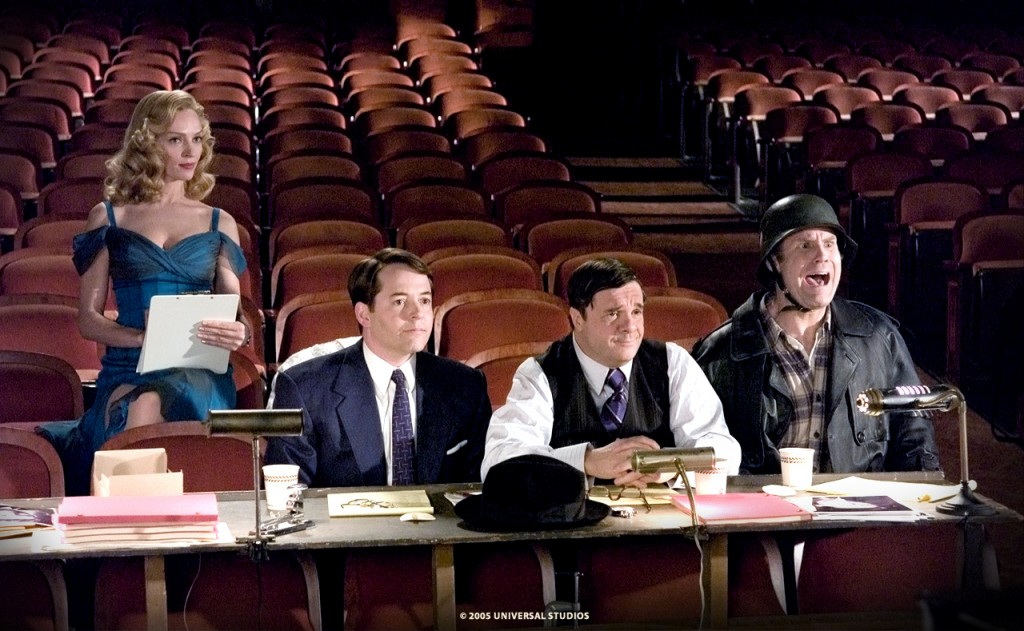
Making college theatre on a budget
By Adam Tatelman, Arts Editor
The hardest thing about being involved in the arts is funding projects. Everything starts from nothing in the world of theatre, so aspiring directors often have to take on the role of producer as well. This means using your own time, money, resources, and contacts to get a project moving. Fortunately, those aspiring theatre-smiths currently attending college or university have access to life-saving resources that other street-level performers don’t.
Of course, everything begins with a script. What you choose to perform isn’t that important, provided you make the theatre department faculty like your concept. Try to contact the program chair, if possible. They’re the movers and shakers, so getting them on board is important if you want to have an easier time scheduling your rehearsal times in the necessary theatre space.
Speaking of space, getting one is the next major step—without one, there’s nowhere to put your actors. Working out a rehearsal schedule with the faculty is essential, since you don’t want anyone calling “dibs” on your space at the last minute. Once you have secured a script, a space, and a schedule, you’ll have an easier time getting actors on board with your show. That’s why you have to include audition times in your schedule.
There are lots of ways to get actors to audition. Websites like Vancouver Public Library and Vancouver Actor’s Guide are open to the public for advertising projects, and there’s always social media sites like LinkedIn or Facebook. However, only being on-site at a college allows you to poach student actors from the local talent pool. Many are ambitious enough to take on extra projects in addition to their schoolwork, although you must be prepared to act as a teacher of sorts if your cast is inexperienced.
Don’t be like those Craigslist ads offering “experience” and “résumé credits” in return for weeks of rehearsal time. Your actors sacrifice literal days they could be using to work for real money, so you should compensate them. With a pool of actors in hand, you will be able to apply for funding from the student union. This can cover the expenses, but any profit you make will have to go back to the student union. If you complete the project with your own resources, you may then use the profit to pay your actors and yourself.
Fortunately, tech isn’t a huge issue in a low-budget production. Lighting and sound cues should be minimal, as union rates for stagecraft technicians are probably outside your budget without student union funding. Any props and costumes you need can be found at dollar stores or provided by actors. Set pieces are usually free to loan from the theatre department, unless the prop shop has a claim on it. They’re usually willing to share, but that often depends on prior working relationships.
Advertising is critical. If no one comes to the show, then you don’t make back what you spent. Get art students to design posters and pamphlets, and pay them a flat commission out of your profits. Then, get the print shop to make a few hundred copies of each. This can be done for free if you’re a student, as long as the program chair approves it. Recruit your cast and crew to distribute the posters in high-traffic areas in and around the college—family-owned restaurants are especially receptive if you offer to advertise them in return.
Cold-call everyone you know, and have your actors do the same. Your first few shows will be attended mostly by friends and family, but that’s how you build an audience. Speaking from experience, it is possible to draw as much attention to your independent theatre project as Douglas College does to its program-sanctioned shows. If your expenses are minimal, following these steps can get you attendance that will easily cover the cost of your show, plus send the cast and crew off with a couple hundred dollars in their pockets.
For a bunch of broke college kids, that’s a pretty respectable haul—and if you’re willing to work your ass off, it’ll only get bigger next time.


